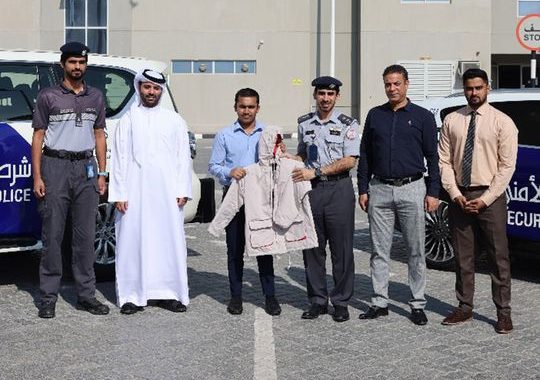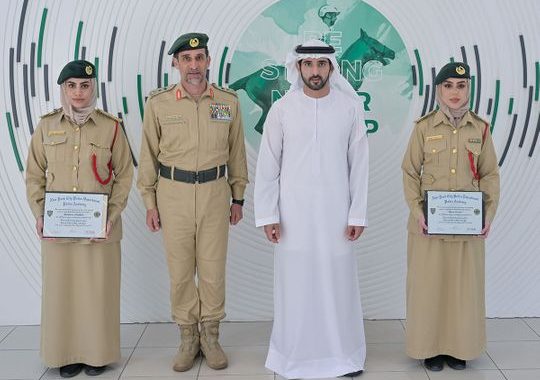Youth trust govt on economic stability: Survey

Image Credit: Abdul Rahman/Gulf News
Dubai: Young Emiratis are confident in the UAE government’s ability to address unemployment, manage the rising cost of living, and ensure economic stability, according to the latest findings of an annual Arab Youth Survey.
They also trust their government to take action on climate change, the 15th annual ASDA’A BCW Arab Youth Survey found.
While Arab youth in the Gulf Cooperation Council (GCC) have responded similarly, nearly two-thirds of their counterparts outside the GCC countries lack confidence in their governments’ ability to tackle their most pressing concerns such as unemployment, corruption, and rising living costs.
More than half (54%) of the total respondents also felt their voice did not matter to their country’s leadership.
This is a significant drop of 19 per cent points over 2022 in the number of young Arabs who said their voice matters to their leadership. This feeling of estrangement, primarily driven by young people in North Africa and the Levant, is also the most pronounced in five years.
The most comprehensive study of its kind of the Arab world’s largest demographic, the survey has covered over 200 million youth, by ASDA’A BCW, the Middle East and North Africa’s leading communications consultancy.
ASDA’A BCW commissioned research company SixthFactor Consulting to conduct face-to-face interviews with 3,600 Arab citizens aged 18 to 24 in their home nations from March 27 to April 12.
The largest sample in the survey’s history was equally divided between men and women in 53 cities across a total of 18 Arab states, including South Sudan, for the first time. The interviews were conducted in person rather than online to maximise accuracy and to reflect the nuances of Arab youth opinion across the region as much as possible.
Six themes
This year, the survey’s findings are being released under six themes, with the first, ‘My Global Citizenship’ announced in June. On Tuesday, ASDA’A BCW published key insights under the second and third themes: ‘My Politics’ and ‘My Livelihood’.
GCC shows the way on policy
More than three-quarters (78%) of Arab youth in the GCC states say they agree that their voice matters to their leadership while a full 87% say their government has the right policies to address their most important concerns.
Arab youth across the sample identified unemployment, government corruption, rising living costs, economic instability and climate change among the top concerns facing them and the region. GCC youth expressed strong confidence in their government to address all these issues.
Nearly all (98%) young Emiratis said they were confident of their government’s ability to address unemployment. Youth had a similarly positive outlook in Saudi Arabia (70%), Oman (67%), Kuwait (64%) and Bahrain (61%). Unsurprisingly, only 20% of GCC youth said it would be difficult to find a job in their country.
Young men and women in the GCC also expressed confidence in their government to address corruption. This was the view of 97% of youth in the UAE, 84% in Oman, 82% in Bahrain, 69% in Saudi Arabia and 56% in Kuwait.
Similarly, 98% of Emirati youth said they were confident that their government could manage the rising cost of living, compared with 66% of young Arabs in Saudi Arabia and Bahrain, 64% in Oman, and 57% in Kuwait. Only 15% of GCC youth said they struggled to pay their expenses in full, though 16% said they were in debt, with student loans (25%), car loans (15%), marriage loans (11%) and excessive shopping (9%) cited as the main reasons.
All Emirati youth polled said they were confident that their government could ensure economic stability; high levels of confidence in economic management were also found in Saudi Arabia (82%), Oman and Kuwait (73% each) and Bahrain (67%). More than half (52%) of GCC youth also said there was no government corruption in their country, although 44% said there was ‘some’ corruption.
Youth in the GCC also trust their government to take action on climate change, with 97% of Emirati youth, 75% of young Saudis, 80% in Oman, 77% in Bahrain and 66% in Kuwait expressing confidence in the climate policies of their leaders. This positivity reflects widespread optimism about the future, with 83% of GCC youth saying their country was going in the right direction.
Barometer of hopes, fears
Sunil John, president, MENA, BCW and founder of ASDA’A BCW, said: “What stands out in this year’s survey is the fact that, once again, young GCC citizens are poles apart from their fellow Arabs in North Africa and the Levant.”
“Over the past 15 years, our research has been a barometer of the hopes and fears of Arab youth in countries outside the Arabian Gulf, particularly on kitchen table issues such as jobs and rising living costs. A path to a better future for these young men and women must be found if we are to ensure the Arab world’s precious youth dividend is not lost.
“It is no small matter that the GCC nations are economically stronger, oil-producing nations, while the countries in North Africa and Levant – in particular, Lebanon, Iraq, Palestinian Territories, Syria, Sudan and Yemen – are conflict-ridden and only recovering from long years of a ravaging war.”
John said that the spirit of youth optimism emerging from the GCC states showed that realising such a future was possible. “The fact that three-quarters of GCC youth believe their voice matters to their leadership, compared to barely a third in North Africa and Levant is telling. It shows that GCC governments understand the pulse of their youth.”
High entrepreneurial spirit
The Arab world has a promising opportunity to promote youth entrepreneurship with nearly half of young Arabs saying they plan to start their own business in the next five years. This entrepreneurial zeal also reflects an increased preference to work for the private sector rather than the government, the survey found.
According to the research, tax breaks, reduced fees for startups, enhanced training and education, and government-backed loans would encourage more youth to become entrepreneurs.
Preference for private sector jobs
One of the significant trends that the survey has documented over the years is the increasing preference of Arab youth for private-sector jobs over a career in government.

Image Credit: Shutterstock
Compared to nearly half of all respondents in 2019 who said that they preferred to work in the government sector, less than a third (30%) feel the same now. Meanwhile, a third (33%) of Arab youth said they would prefer to work in business, a 13% increase from 2022.
One in four (25%) young Arabs now say they want to work for themselves or their family, a slight decline since last year (28%), but a six-percentage point jump from 2019. Meanwhile, 11% said they preferred to work for a non-profit organisation.
John commented: “The fact that Arab youth are eager to start their own business is an encouraging sign, but it is also a natural response to the great difficulty in certain countries to find stable employment. Policymakers and the business community itself must do more to support those young men and women willing to do it alone.”
“Meanwhile, the increasing diversification of the GCC economies is casting the private sector in a positive new light,” John added. “This is a promising trend for the long-term sustainability of the regional economy and a potential source of jobs and opportunity for Arab youth outside the Arabian Gulf.”
“However, this growing interest in a business career must be matched by companies themselves, with recruitment and career development pathways introduced to empower the region’s rapidly evolving Arab national workforce,” John said.
In the coming weeks, ASDA’A BCW will publish insights under the three remaining themes covered in the study: My Identity, covering religion and issues of personal identity; My Aspirations, the hopes of young Arabs for the future; and My Lifestyle, highlighting their habits, pastimes, and the media they consume.
Findings on climate change, mental health and gender rights will also be disclosed, making this year’s study the most extensive in the survey’s history. The overall theme of the 15th edition of the ASDA’A BCW Arab Youth Survey is ‘Living a New Reality’.





